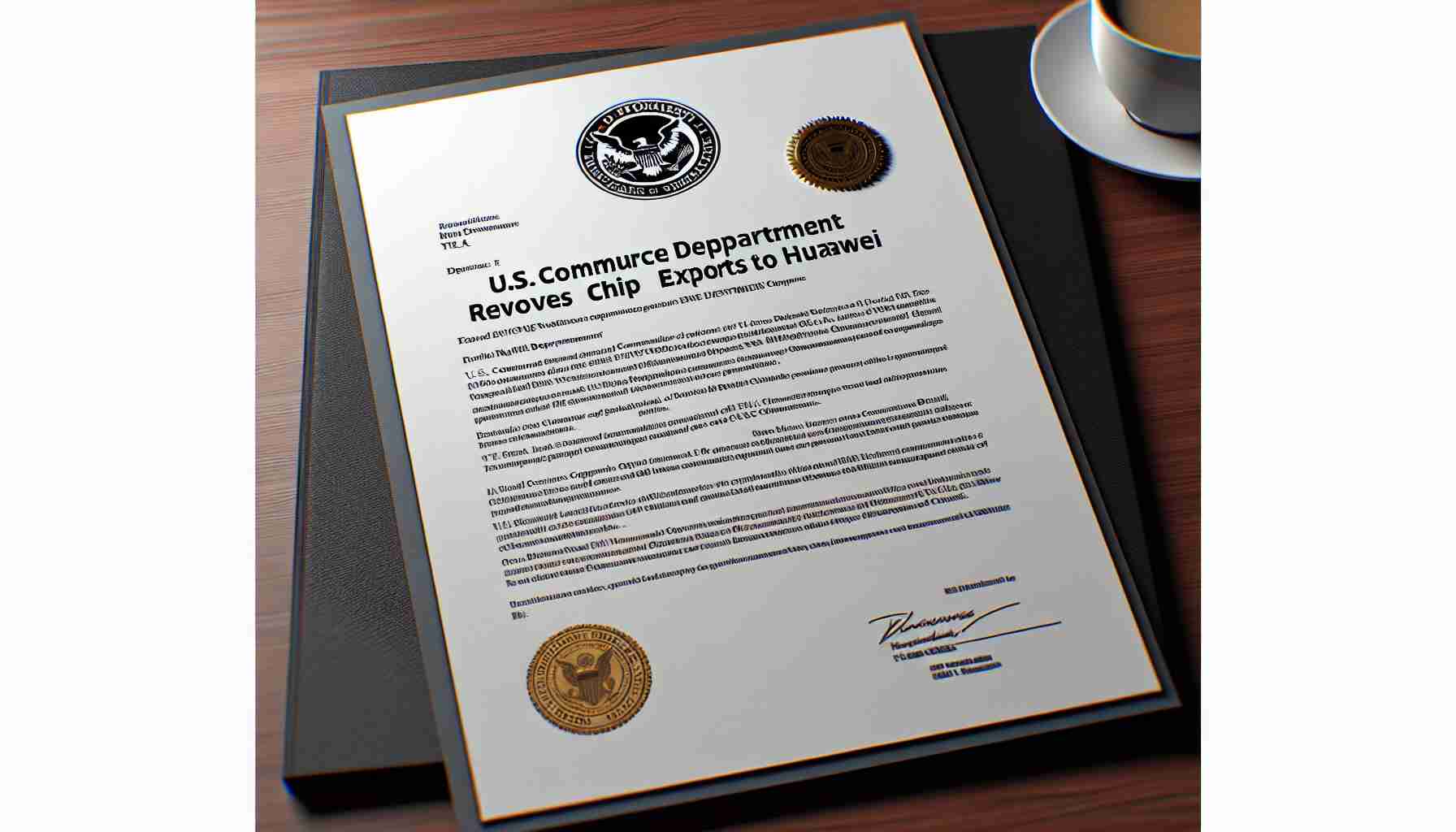The U.S. Tightens Restrictions on Huawei
Recent updates indicate that the U.S. government has intensified its trade restrictions against Huawei Technologies, the Chinese telecoms giant. Sources familiar with the developments revealed that American corporations, including tech leaders Intel and Qualcomm, have been stripped of their privileges to ship semiconductor products for use in Huawei’s laptops and smartphones. These licenses were withdrawn abruptly, signaling a more stringent enforcement of U.S. trade policies.
Despite not publicly listing the companies affected, the U.S. Commerce Department confirmed the license revocations. Both companies targeted, Intel and Qualcomm, offered no immediate comment, and Huawei’s response was delayed.
Impact of Export License Revocations
The revocation of these licenses appears to be a direct response to the launch of Huawei’s latest AI-equipped laptop, the MateBook X Pro. Specifically, the device features Intel’s newest Core Ultra 9 processor—a move that raised concerns among Republican legislators as it implied prior approval by the government for the sale of chips to Huawei.
Though the Commerce Department withheld details, this action arrives amidst prolonged advocacy by Republican China skeptics, demanding the Biden administration adopt a harsher stance to suppress Huawei’s technological progression. The measure is expected to inflict damage on not only Huawei’s operations, which rely heavily upon Intel’s chipsets for their computing products, but also on the American suppliers engaged in transactions with the telecom company.
This clampdown on Huawei, initiated in 2019 due to espionage fears and concerns over China’s military capability expansion, continues to tighten the leash on the tech firm’s supply chain. While licenses once permitted billions in sales to Huawei—including contentious approvals under the Trump administration—the latest measures suggest a diminishing tolerance from U.S. regulators. Huawei’s resilience, however, remains notable as it managed to deliver a 64% uptick in smartphone sales in early 2024 and demonstrated robust growth in its smart car component sector the previous year.
Key Questions and Answers:
– Why has the U.S. Commerce Department revoked licenses for chip exports to Huawei?
The U.S. Commerce Department’s decision to revoke licenses appears to stem from national security concerns regarding Huawei’s close ties to the Chinese government and the fear that technology supplied to Huawei could be used for espionage or military purposes. This action indicates a more aggressive approach in enforcing export restrictions.
– How might this move affect Huawei and the American companies involved?
Huawei will likely face increased challenges in sourcing advanced semiconductor components for their products, which could impact their competitiveness and market share in the global tech industry. Conversely, American semiconductor companies like Intel and Qualcomm may lose significant revenue from the sales they previously made to Huawei.
– What broader implications does this revocation of licenses hold?
This revocation could exacerbate tensions between the United States and China, affecting not just the tech industry but potentially resulting in broader economic and geopolitical consequences.
Key Challenges or Controversies:
– Striking a Balance: A key challenge is balancing national security concerns with the economic implications for U.S. companies that benefit from trade with Huawei.
– Global Supply Chain: The global nature of the semiconductor supply chain means that actions taken by the U.S. government can have ripple effects worldwide. Other countries and companies might need to navigate these changes and possibly take sides.
– Technological Sovereignty: China has increased efforts to develop self-reliance in semiconductors but has faced challenges in achieving this. The U.S. restrictions could accelerate these efforts, potentially leading to a more significant divide in technological capabilities.
Advantages and Disadvantages:
– Advantages:
– May address national security worries by limiting the capacity of companies like Huawei to access advanced U.S. technologies.
– Signals a firm stance to allies and partners regarding the U.S. commitment to national security.
– Disadvantages:
– Could result in economic losses for American tech companies who have to cut off a significant customer.
– May trigger retaliatory measures from China, potentially harming other sectors of the economy.
– Could motivate China to expedite its efforts in becoming self-sufficient in semiconductor technology.
For further information on this topic, you may visit the official website of the U.S. Department of Commerce. Please note that due to censorship and internet restrictions, information access in China is different from the U.S., impacting the perspectives and availability of information from sources within China.
The source of the article is from the blog mendozaextremo.com.ar
